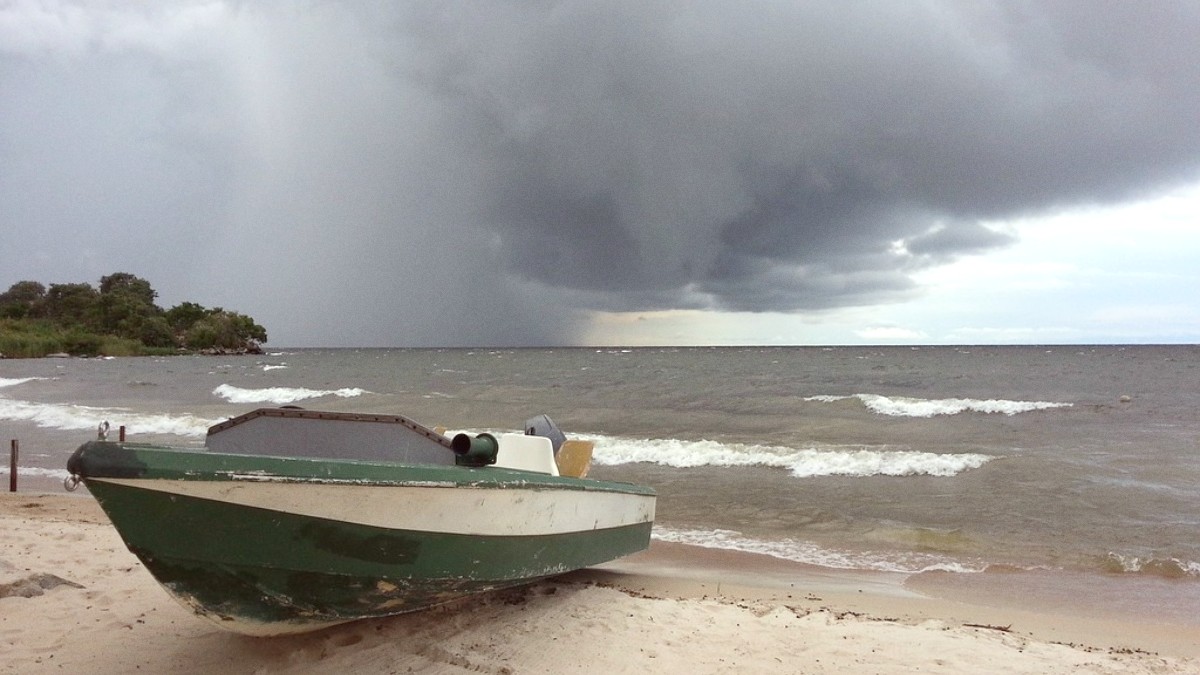
Mwanza Northern Tanzania, Tanzania Travel Guide
Tanzanian cuisine is hearty and comforting, mainly based on staples like ugali (a stiff porridge from cornmeal), rice (wali), and various flavorful stews.
Mwanza's unique culinary identity stems from its Lake Victoria location. Fresh fish, especially Nile Perch and Tilapia, hold a central role in local dishes.
Ugali (cornmeal), rice (wali), chapati (a flaky flatbread), plantains (ndizi), cassava (mhogo), and potatoes (viazi) form the foundation of most meals.
Fresh fish (samaki) from Lake Victoria is central. Beef (nyama ya ng'ombe), goat (mbuzi), and chicken (kuku) are also common. Common accompaniments include sukuma wiki (braised collard greens), spinach (spinachi), and beans (maharage).
Ginger, garlic, and chili frequently add flavor. Coconut milk also finds its way into some Mwanza dishes. Flavors are often simple, savory, and robust, focusing on natural taste.
This is a staple meal across Tanzania and especially popular in Mwanza. It consists of stiff cornmeal porridge (ugali) served with grilled or fried Lake Victoria fish (usually Nile Perch or Tilapia).
Find it in almost any local eatery (migahawa).
A popular street food. This dish combines "chips" (French fries) with "mayai" (eggs) to create a French fry omelet.
Many street food stalls and small restaurants serve it.
Grilled marinated meat skewers, typically beef or goat. They offer a smoky, savory flavor.
Find these at street stalls, especially in the evenings, and at local restaurants.
Deep-fried potato chips often served with chili powder and salt, a simple yet popular snack.
Similar to mandazi, but often slightly sweeter and sometimes made with coconut milk.
Dedicated fine dining is limited. Upscale experiences are found within luxury hotels like Malaika Beach Resort and Tilapia Hotel.
Numerous mid-range restaurants in Mwanza offer a mix of Tanzanian, Indian, and sometimes Western dishes. Look for places popular with locals and expats.
Migahawa (local restaurants) serve affordable staple meals. Street food stalls are excellent for quick, cheap snacks like samosas, mishkaki, and chips mayai.
Vegetarian options are possible: ugali with sukuma wiki (collard greens) or beans (maharage). Confirm stews are meat-free. Vegan: more challenging, but focus on naturally plant-based foods.
Learning basic Swahili phrases for dietary needs ("sina nyama" - I do not eat meat, "sina maziwa" - I do not eat milk) aids greatly.
Halal meat is generally available due to the Muslim population. Kosher options are extremely limited, likely unavailable.
Gluten-free: Ugali and rice are natural options. For complex allergies, carry an allergy card in Swahili. Stick to simpler dishes where ingredients are obvious.
Formal cooking classes are rare. Some guesthouses might offer informal experiences. Knowledgeable local guides can lead market and street food tours.
Possible to visit local farms or fishing villages to observe food production, like traditional fishing methods and agricultural practices.
Mwanza does not have major food festivals regularly scheduled for international tourists. Local celebrations may feature special foods.
Lakeside Dining: A defining experience. Enjoy fresh fish directly on Lake Victoria's shores with beautiful views, especially at sunset.
Popular local lagers include Kilimanjaro, Safari Lager, and Tusker. These are widely available in bars and restaurants.
A refreshing choice for local taste.
Konyagi is a local gin, a popular spirit often mixed with soda. Various traditional brews exist, but exercise caution regarding hygiene when considering these.
Often prepared informally, so discretion is advised.
Mwanza's consistent tropical climate means food variations are less about distinct seasons. However, certain fruits, like mangoes, are seasonal and appear in abundance when ripe.
Eating with hands (right hand, after washing) is common for dishes like ugali. Meals are often communal, with sharing from a central platter. Modest dress is needed in public dining spaces.
A defining experience in Mwanza involves enjoying fresh fish directly on the shores of Lake Victoria. Many hotels and local eateries offer this experience.
Visiting local farms or fishing villages around Lake Victoria lets you observe food production, like traditional fishing methods and agricultural practices.
Mwanza's consistent tropical climate means food variations are less about distinct seasons. Mangoes are seasonal and appear in abundance when ripe.
Many traditional dishes, especially ugali, are eaten with the right hand. Always wash your hands thoroughly before and after eating for hygiene.
A common and authentic local practice.
Meals are often communal events. Dishes may arrive on a central platter, and diners share from it, a reflection of local hospitality.
Be prepared to share dishes in local eateries.
Vegetarian options are possible (e.g., ugali with sukuma wiki or beans). Vegan dining is more challenging. Clearly communicate your needs.
Halal meat is generally available due to a significant Muslim population. Kosher options are extremely limited, likely unavailable.
Ensuring strict allergen-free dining can be difficult. Carry an allergy card in Swahili. Stick to simpler dishes where ingredients are obvious.
Always wash your hands thoroughly before and after eating, especially if eating with hands. Choose street food stalls with high customer turnover where food is cooked fresh in front of you for hygiene.